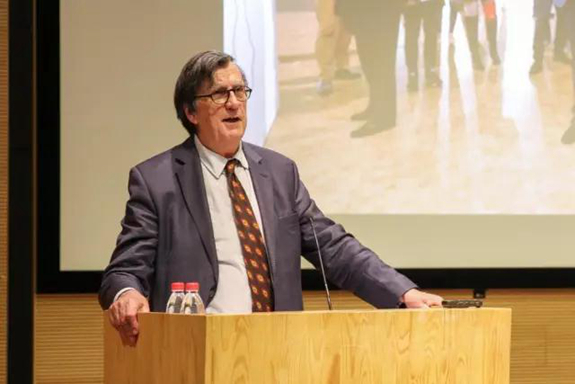
On May 13, 2017, hosted by New Century Art Foundation and the School of Experimental Art, CAFA, the lecture entitled “Have We Never Been Modern? – Dialogue with Bruno Latour” was held in the Auditorium of the CAFA Art Museum.
Bruno Latour, born in 1947, is a famous French philosopher and anthropologist who is also the leader of the scientific sociology research, an important scholar of the STS (Science and Technology Studies), and he is one of the most influential thinkers in Europe and America. The honored guests Prof. Judith Farquhar from the Department of Anthropology, University of Chicago, Prof. Wang Min'an from the Capital Normal University, Prof. Wu Guosheng from the School of Humanities, Tsinghua University and the well-known Chinese contemporary artist Wang Jianwei also participated in the dialogue during the lecture.
Before the lecture, Wang Yuyang, Deputy Dean of the School of Experimental Art and Ms. Nannan, Executive Director of New Century Art Foundation, respectively delivered a speech on behalf of the organizers, and thanked Latour for his arrival and gave a lecture. Then, Prof. Wang Min'an from the Capital Normal University who hosted the lecture mentioned that Latour was the first scholar to introduce science into the field of humanistic research. He advocated the anthropological research methods in a laboratory and actor-network-theory, and the books of “Laboratory Life”, “We Have Never Been Modern”, “Reorganize Society” and “Natural Politics”, which do not only have an important impact onsociology and they are also the tools of enlightening and creation for the research and practice of various disciplines including the arts.

Speaker Bruno Latour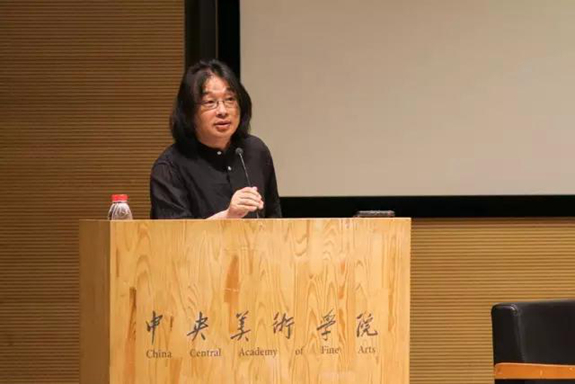
Prof. Wang Min'an at the Capital Normal University
Prof. Wang Yuyang at School of Experimental Art, CAFA
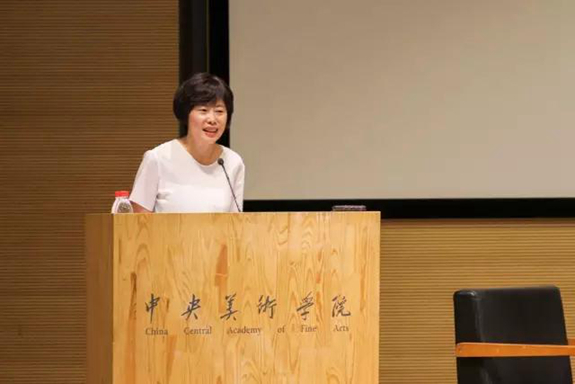
The lecture is divided into two parts. First of all, Latour delivered 45 minutes of a keynote speech, and then invited the honored guests to participate in the dialogue. Latour said that, he came to CAFA to give a lecture mainly focusing on his work when he was a curator, instead of the “work of an intellectual”. Latour has planned several exhibitions and he modestly called himself “an immature curator”, whose curatorial idea was mainly trying to combine his own research and the creation of artists with the aim of thought provoking. And Latour then introduced three classical exhibitions to open the discussion on this keynote speech. First of all, the exhibition of “Science, Religion and Behind the Iconoclash of Art” planned in 2002, which was an exhibition of anti-“icon”, and the curator tried to answer a few questions, for example, what did “destructing ‘idol’ want to do, the difference between constructivism and anti-idolism, what is the truth of the image?; the exhibition of “Making Things Public – an Atmosphere of Democracy” in 2005, 40 young artists that had just graduated from the school were invited together with the political personnel to study the subject; the latest exhibition of “Reset Modernity” held in the ZKM in Germany in 2016, to re-explore the problem of modernity. Latour said that, “The most interesting thing for curators is to be able to transform the space into an environment that interacts with the audience and makes the audience visit on-site work. In the exhibition, Latour provided the audience with a manual, the viewer can learn, observe and think according to the manual, and ultimately give feedback.
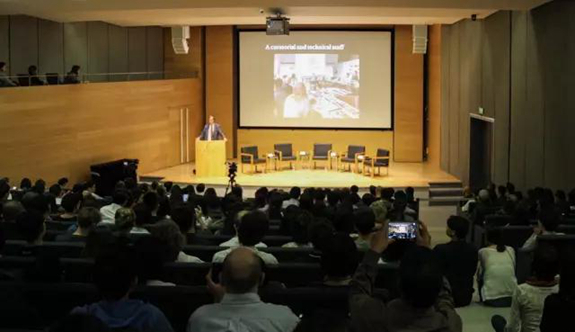
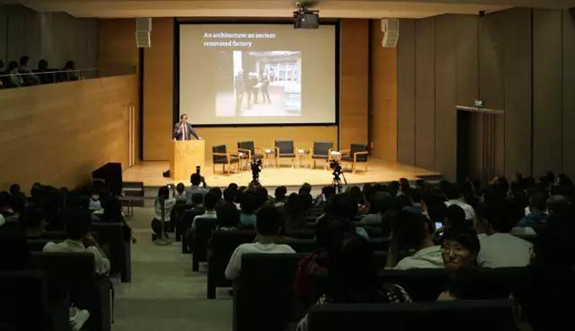
“Why do they organize an exhibition instead of writing a book?” In the following section, honored guests had a dialogue, the host Prof. Wang Min'an issued his own view: “It is certain that the book has an irreplaceable role, but the initiative of the book itself is poor. We are able to use the exhibition, the project, and the academic activities to help the audience directly produce the power of thought.”Prof. Wang said that within the current worldwide influential intellectuals and philosophers, Latour was the first one that combines the exhibition with the project and writing, resulting in a social effect, “Which is a particular valuable special action of Latour”; Judith Farquhar said that Latour was a scholar that is rich in energy, and he encountered a variety of targeted groups to create a bridge which is a “diplomatic encounter” that allows us to communicate and eliminate some insurmountable gaps.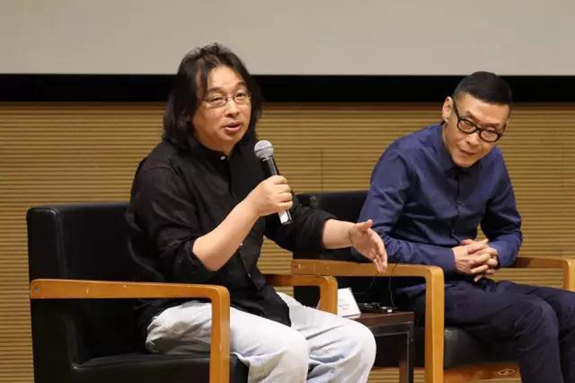
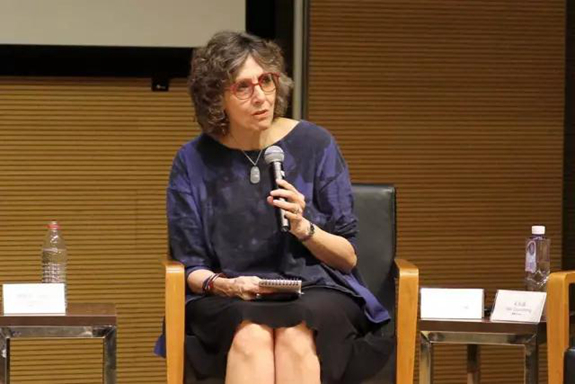
Prof. Wu Guosheng from the School of Humanities, Tsinghua University said that Tsinghua University was about to establish a “Science Museum”, so he might follow the example of Latour, to engage in some “scientific curatorial work”. On the theme of this discussion “We Have Never Been Modern?”, Prof. Wu Guosheng said, seen from the perspective of Latour, the sign of “modernity” is to complete a strict and thorough separation of nature and people, which has never been completed by Europeans, so “we have never been modern”. Prof. Wu Guosheng believed that there is not the concept of “nature” in Chinese traditional thought, because it has never had the so-called objective that can’t be changed by will in China, where the “climate, geography and humans” are interlinked, for example, it needs “favorable climatic, geographical and human conditions” to successfully finish it. May Forth Movement of New Culture happened in China in 1919 and marked a break, which foreshadowed “When we say goodbye to our traditional way of life, what is the upcoming new way of life? Isn’t it modern?” In the view of Prof. Wu, it shows precisely that “China is actually very modern”.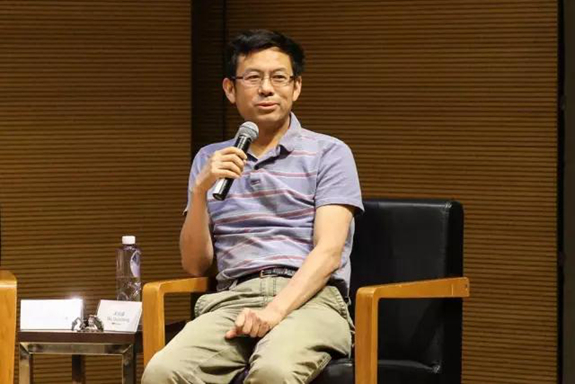
Artist Wang Jianwei has been exploring the impact of knowledge integration and interdisciplinary work on contemporary art since the 1990s, and has tried to use different disciplines to create new artistic language. In the context of comprehensive knowledge, he practices an interdisciplinary method to watch the world through philosophical questioning, and gives form to these practices. The works of the art show show a variety of forms including film, drama, multimedia, installation, painting and text as well as other fields. “If you face a complex problem, the best way is to take a cold shower – immediately jumping into the water,” Wang Jianwei said, “Today we are talking about this topic, and I also hope that I jump in the water immediately.” Wang Jianwei talked about his understanding on Latour’s books, and put forwards several points, for example,“modernity”, he said that, the “Scientific Laboratory” is a perfect construction of “modernity”.
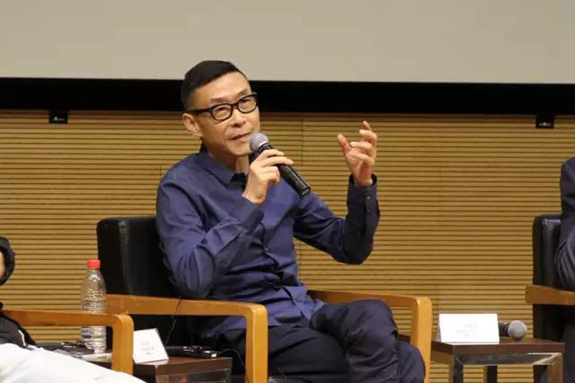
The lecture is involved in the relevance between art, philosophy and science as well as various topics on modernism. At the end of the lecture, Latour and the honored guests also responded to the audiences’ questions.
Text by Lin Jiabin, translated by Chen Peihua and edited by Sue/CAFA ART INFO
Photo by Hu Sichen/CAFA ART INFO
